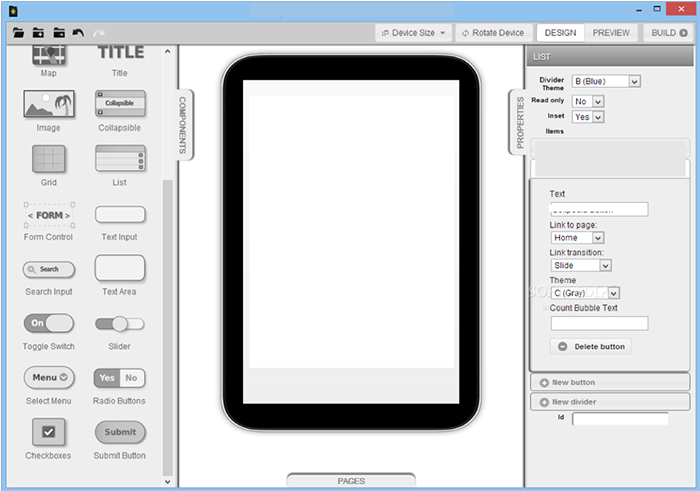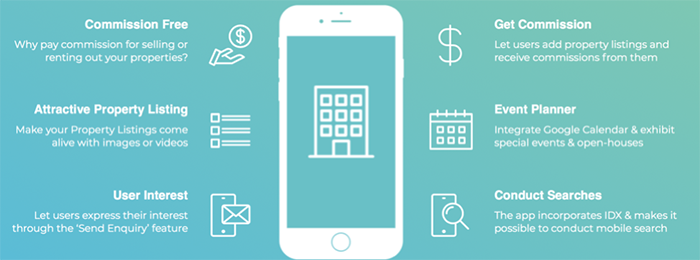4 Reasons to Use a DIY App Builder for Your Business

4 Reasons to Use a DIY App Builder for Your Business
A mobile app can allow a business to engage current customers, open new revenue streams, and gain new customers. DIY app builders help businesses with limited budgets, time, and coding expertise create mobile apps.
In the past, app development required hiring a development firm or bringing on additional staff to build the mobile app.
Both of those options can be daunting to a small business owner. Development partners can be expensive and challenging to work with on a smaller budget. Meanwhile, staff onboarding for a singular function, like app development, has its own logistical challenges, even on a freelance or part-time basis.
Yet, the overwhelming majority of users prefer mobile apps to mobile sites – a 2014 Nielsen research study shows that 89% of consumer mobile media time is spent in mobile apps, while only 11% is spent in mobile web.
Today, there is another solution for small businesses: do-it-yourself (DIY) app builder platforms. Typically, these services are web-based – requiring no software downloads – and easy to navigate, providing the step-by-step instructions needed for even the most basic computer user to develop and launch a mobile app.
There are four main reasons a small business should consider using a DIY app builder platform. These solutions offer small businesses:
- Lower cost
- Ease of use
- Cross-platform outputs
- Easy adoption of best practices
1. DIY Mobile App Builders Make App Development Affordable
DIY mobile app building platforms are an inexpensive way for a small business to enter the mobile app arena. The costs for a DIY platform can range anywhere from $30 to $699 per month, depending upon the functionality desired.
Compared with the cost of a reputable development partner, which often can range from $5,000 to $50,000+, the DIY platform can put a mobile app into just about any business’ budget.
Another cost savings for the DIY platform is that no specialized staff is necessary to develop the app. In many instances, anyone with a basic knowledge of computers can build a solid, dependable, and fully functional mobile app. These may not have all of the bells and whistles of a custom-designed app, but many businesses need only the basics.
DIY app builders also decrease costs during the development, testing, and implementation phases of app development.
When utilizing a programmer or development partner, these iterative stages can take extensive time. Most DIY platforms allow testing and implementation to take minimal time, and changes are typically very easy to make within the system.
2. DIY App Builders Are Easy to Use
In the past, developing a mobile app without a development partner required coding expertise that many small- to medium-sized businesses didn’t possess.
Utilizing a DIY app builder allows the mobile app to be produced in-house without the need for a developer or coding specialist. Most of the platforms come with pre-designed templates that a small business can customize and implement with no special technical expertise.
DIY platforms typically offer a “drag and drop” method of development, where pre-programmed modules can be added to the app with ease. These modules can be plugged in, moved around, or discarded with a few clicks of a mouse or trackpad.

Certain DIY app development solutions offer somewhat advanced functionality. From integration with social media and e-commerce sites to location-based features and push notifications, the DIY app builders can offer a finished product that is functional and dependable for many small businesses.
In the case that a business wants functionality that is not available in the DIY solution, many of the leading DIY platform providers have advanced support teams that may be able to assist with customization. While this usually comes at an extra cost, it will be less than outsourcing the development.
However, do be aware that DIY app builders can usually only reliably build basic apps. They may not be the right choice for your small business if you desire extensive functionality or customization.
3. You Can Reach Customers Across Multiple Platforms
There are plenty of questions to ponder when developing a mobile app. Android or iOS? Phone or tablet? Native or hybrid?
Most DIY app builders answer all of these questions with one word: “Yes.”
Some DIY app builders produce hybrid apps, which are designed to work across various operating systems. Hybrid mobile apps are built in a similar manner as mobile web sites. However, many hybrid apps don’t work as well as native apps, which could negatively impact the user experience.
There are some DIY app builders that can produce native apps. These services use a similar drag and drop developer, but the output will be slightly different for each platform. This allows the app to take advantage of the unique capabilities of Android, Apple, and other devices.
Furthermore, some DIY app builders will provide outputs for tablet devices. Tablets have a larger screen size and are often turned sideways to mimic a traditional monitor. The app experience will need to be different to take full advantage of the tablet screen.
Once the app is developed, many DIY app builders allow for small-scale testing outside of the developer platform. This allows a small business to test the app in-house before a larger roll out.
Getting the finished product published on the various app stores is relatively simple with the DIY app builder.
The service providers have solid experience with the publishing phase, which may minimize the chance of rejection. Most providers will have support staff review the finished app to ensure that the implementation phase goes smoothly and quickly.
4. DIY App Builders Offer Templates for Various Industries
When a business makes the decision to invest in a mobile app, there can be a lengthy discovery phase that could have a significant cost if using a development partner. Some items that may occur during discovery include:
- Conducting market research about potential competitors and apps
- Analyzing what app features are needed to meet the company’s goals
- Creating prototypes to visualize the app
With many DIY app builders, all of those items are addressed through the use of pre-designed templates. These templates are developed based upon best practices and commonly used features for various industries. For example, one DIY platform offers templates for radio stations, religious organizations, real estate professionals, restaurants, and small retailers.

Each of these templates offers functionality that is most common for the industry sector, taking much of the guesswork out of the process. These templates are also customizable, allowing the business to add or delete functionality as needed. This shortens the development process and allows for changes as a business’ needs change.
DIY App Builders Can Make Development Fast and Affordable
DIY app builders can provide a cost-effective solution that will allow small businesses or companies with limited budget to develop a solid and functional mobile app.
These apps, while not as flashy as custom-designed apps, provide a host of benefits to businesses looking to grow their revenue and engage customers.
Finally, these low-cost and easy-to-use platforms can allow a company to explore the benefits of having a mobile app without an expensive and taxing development process.
